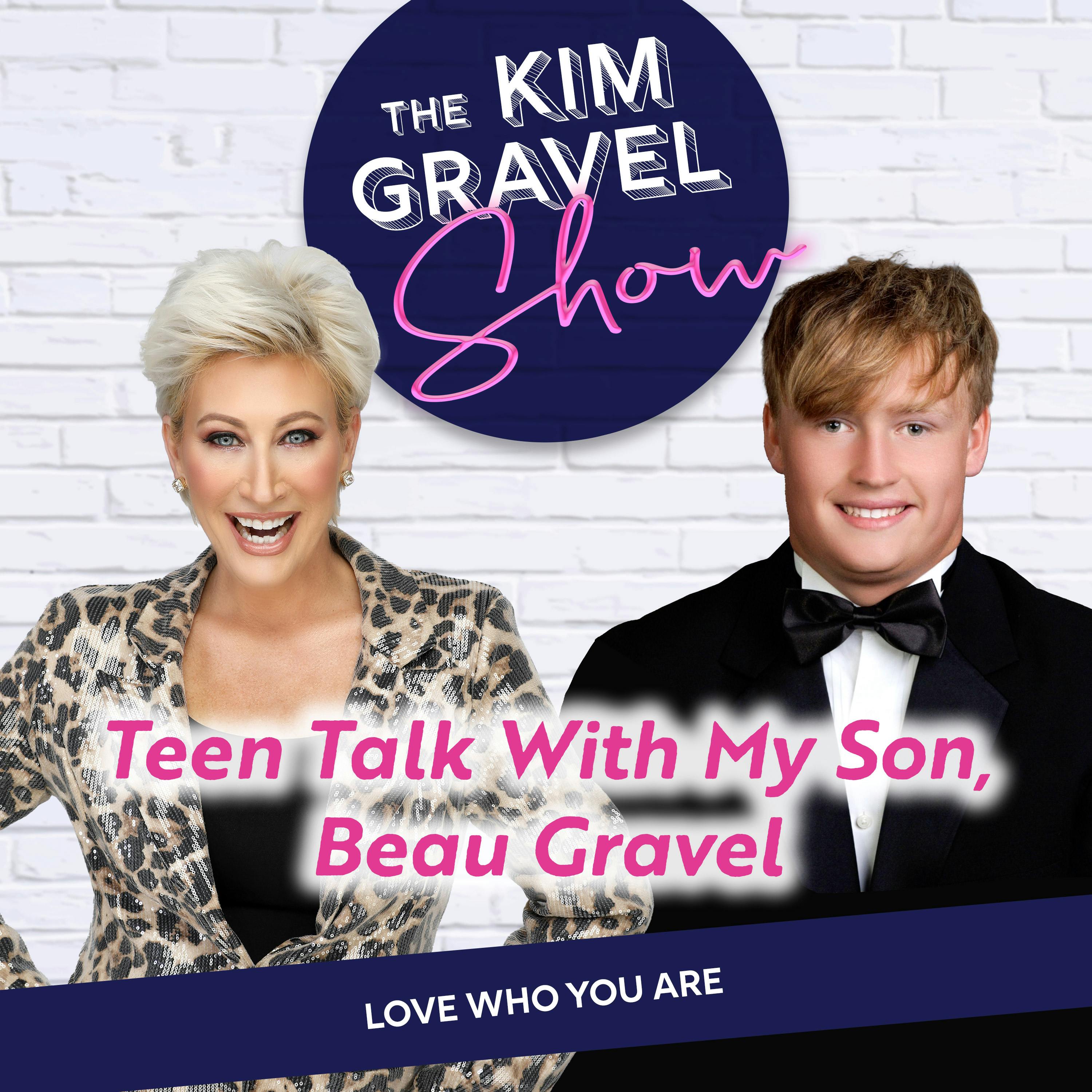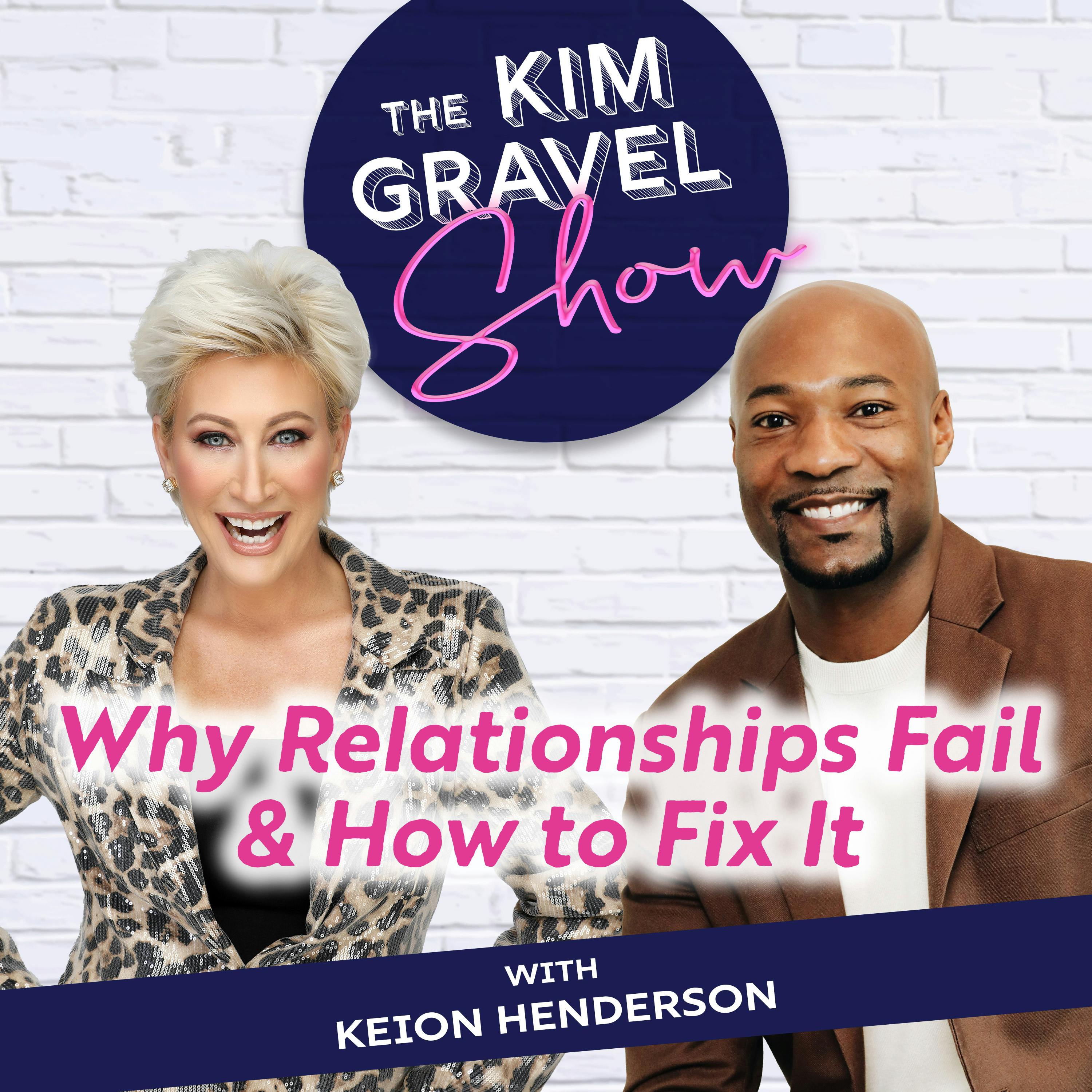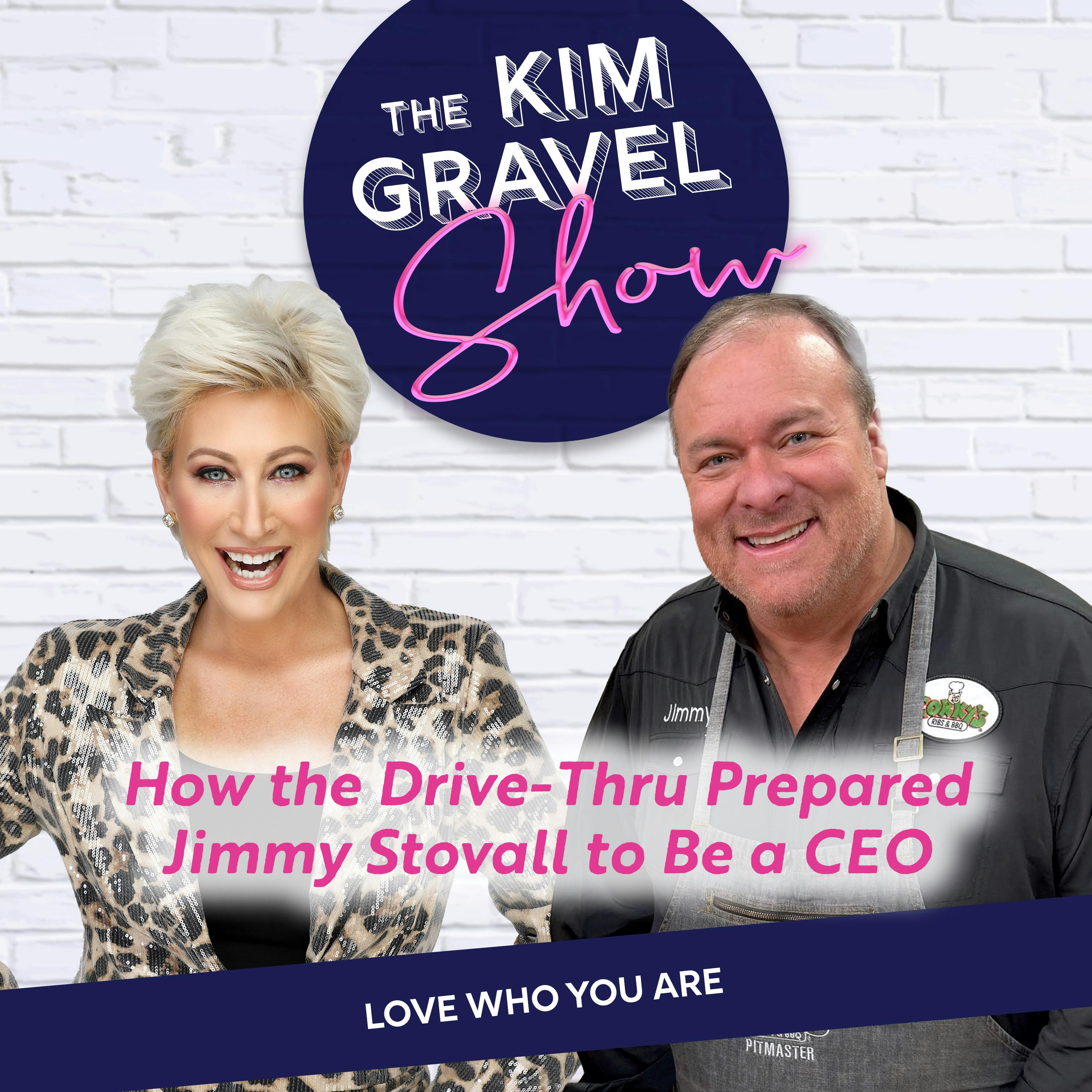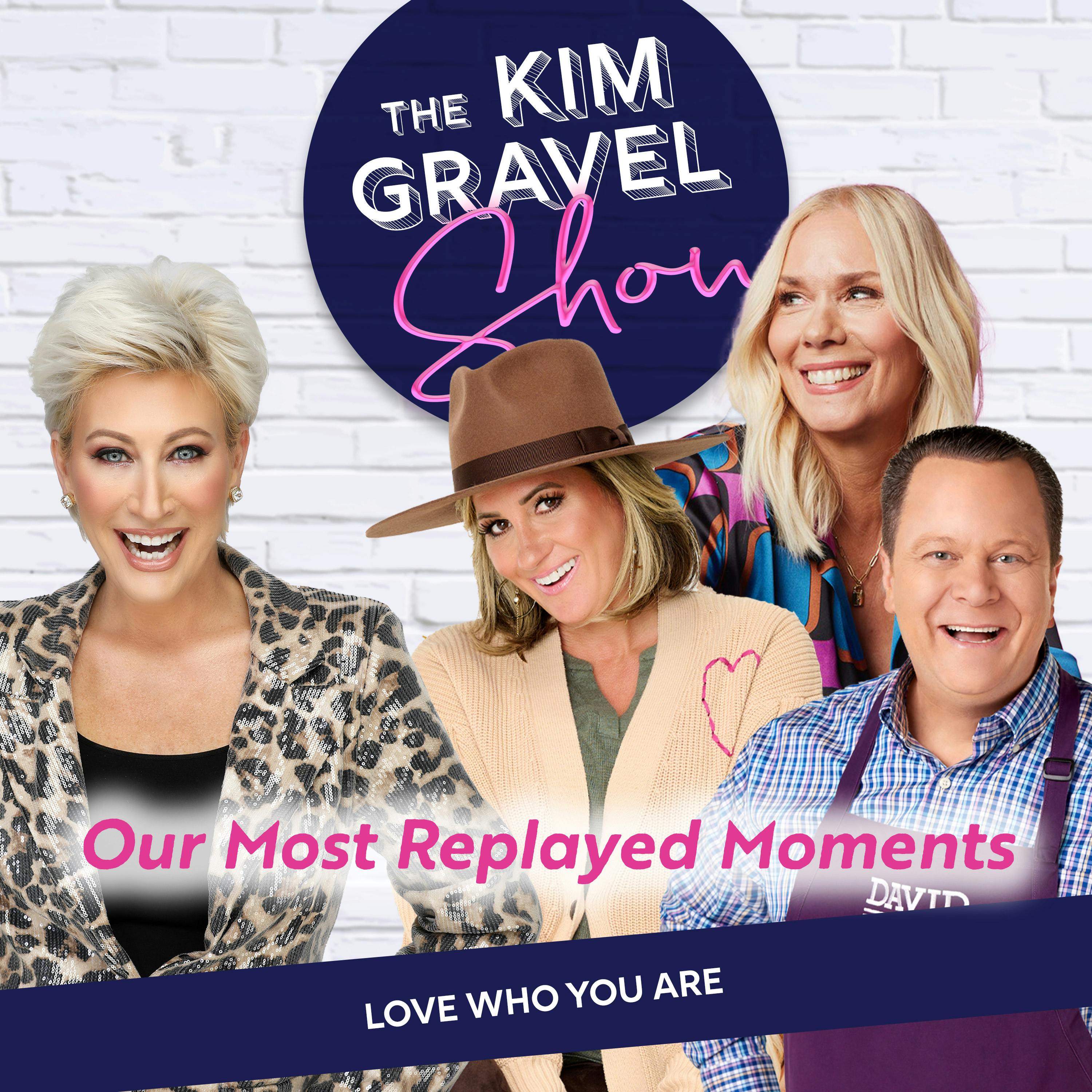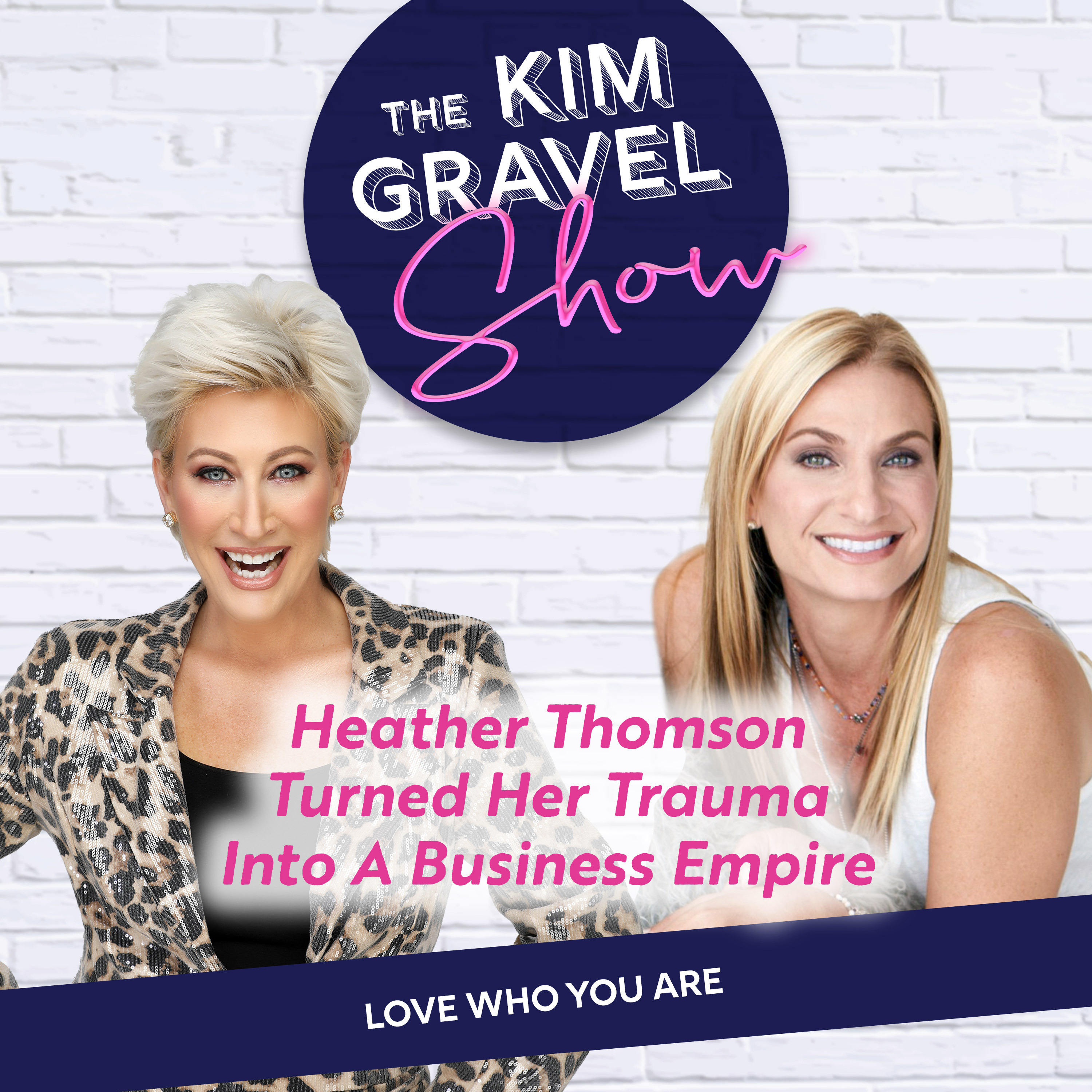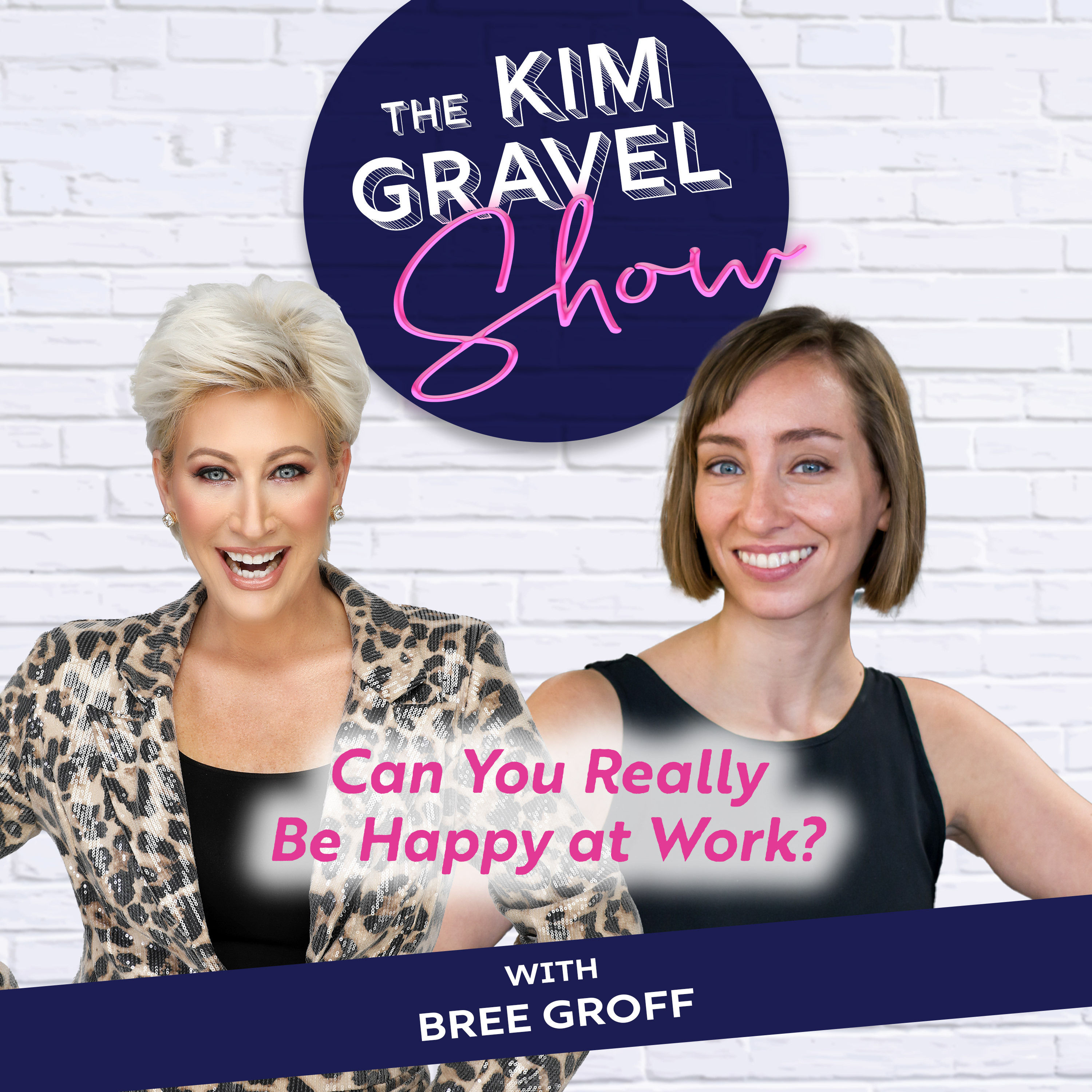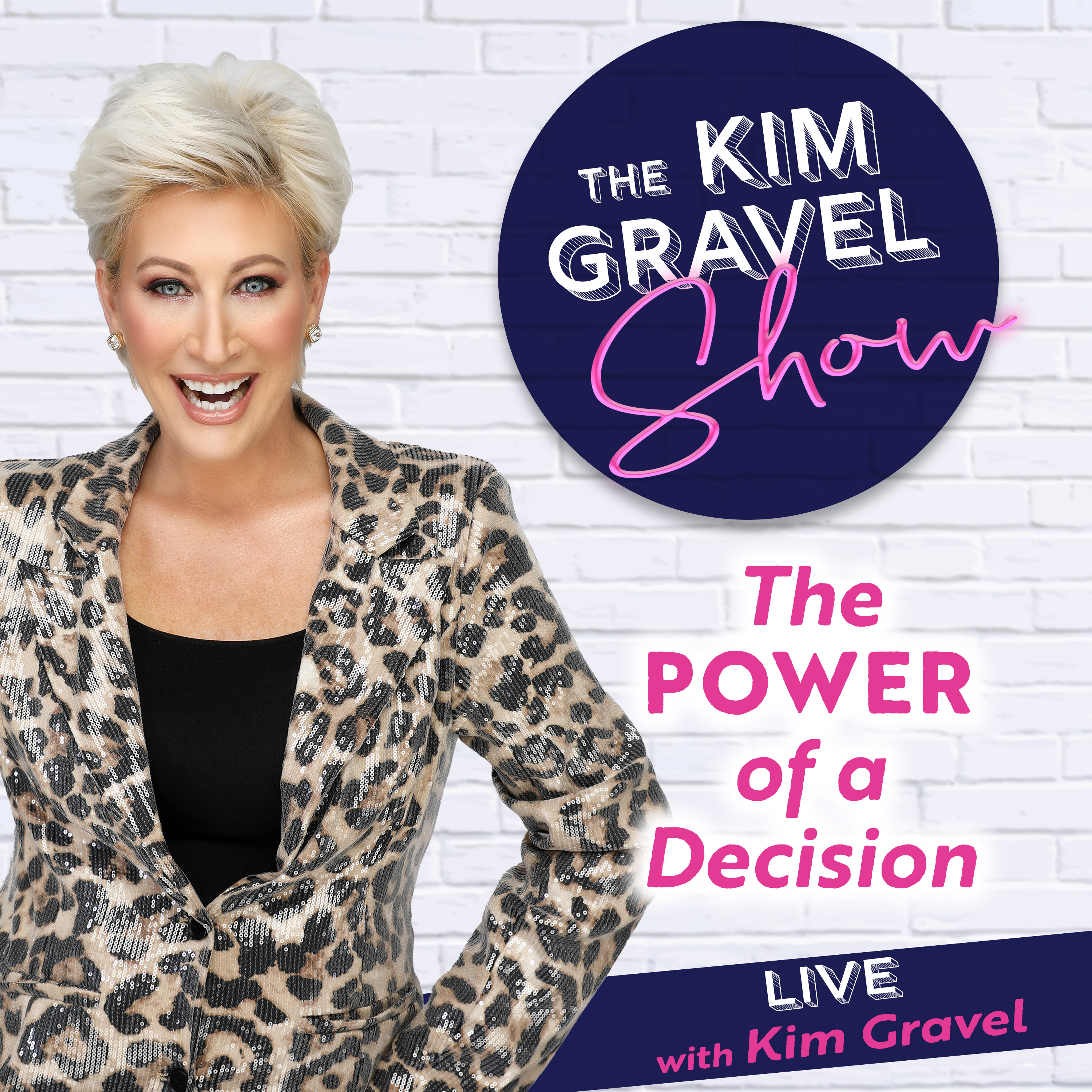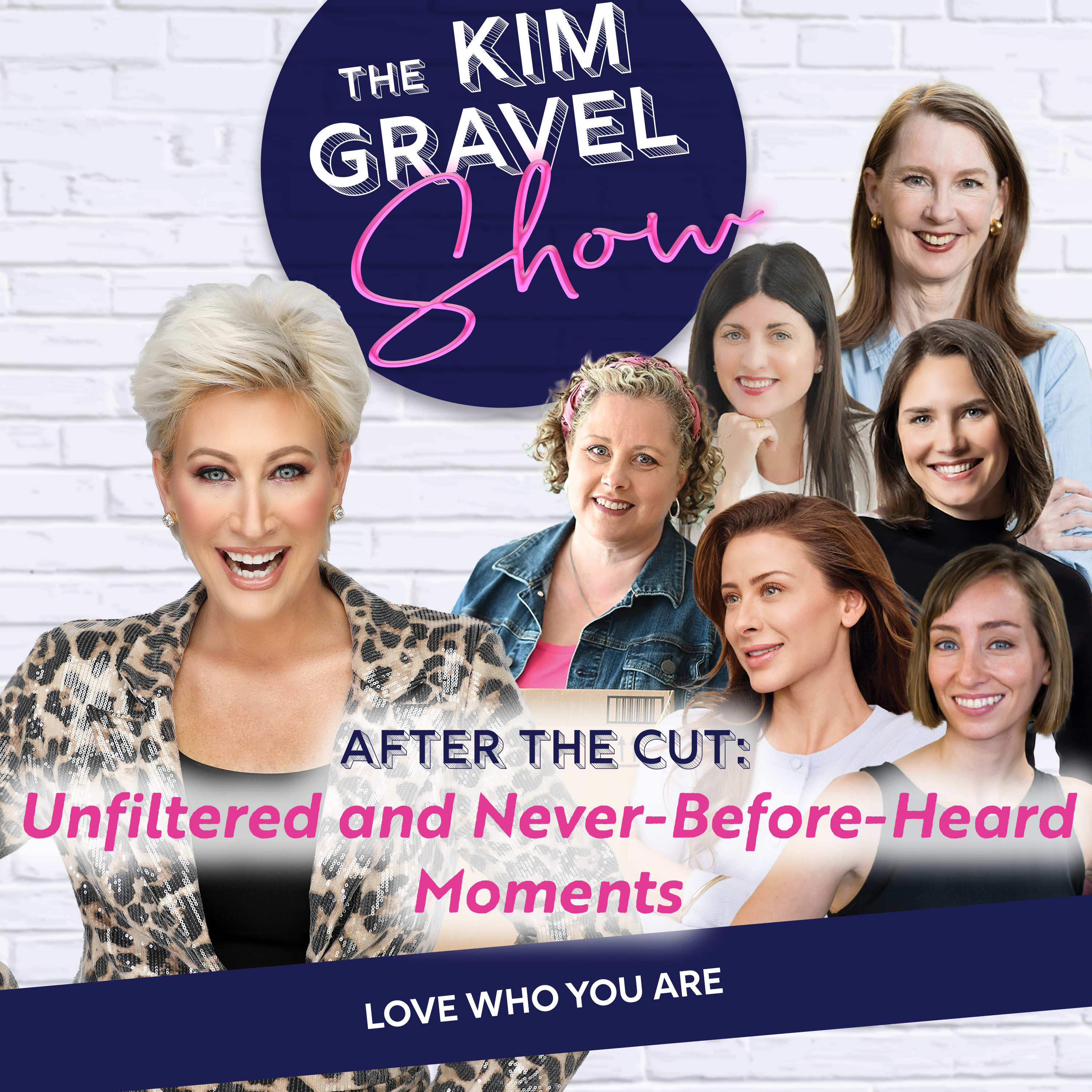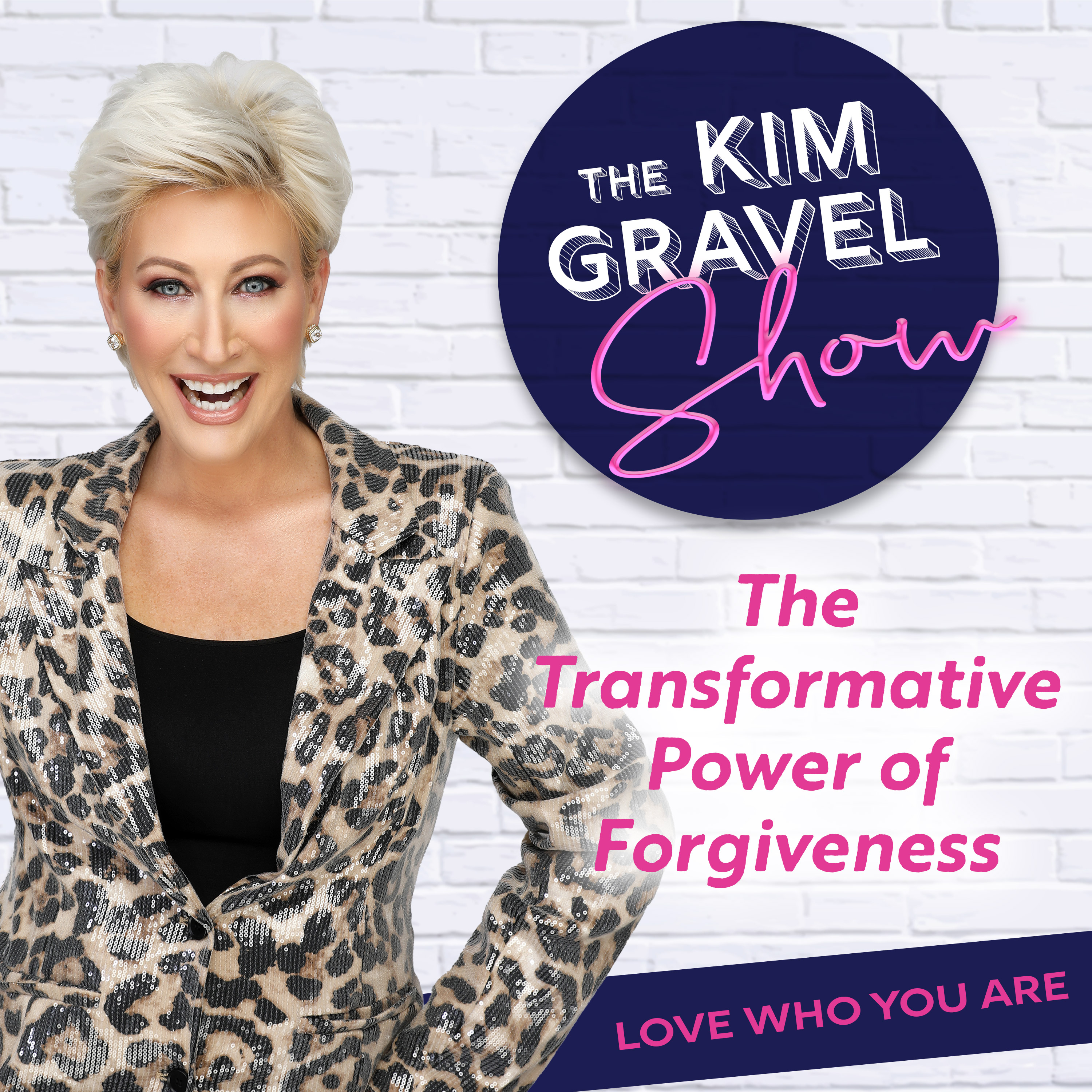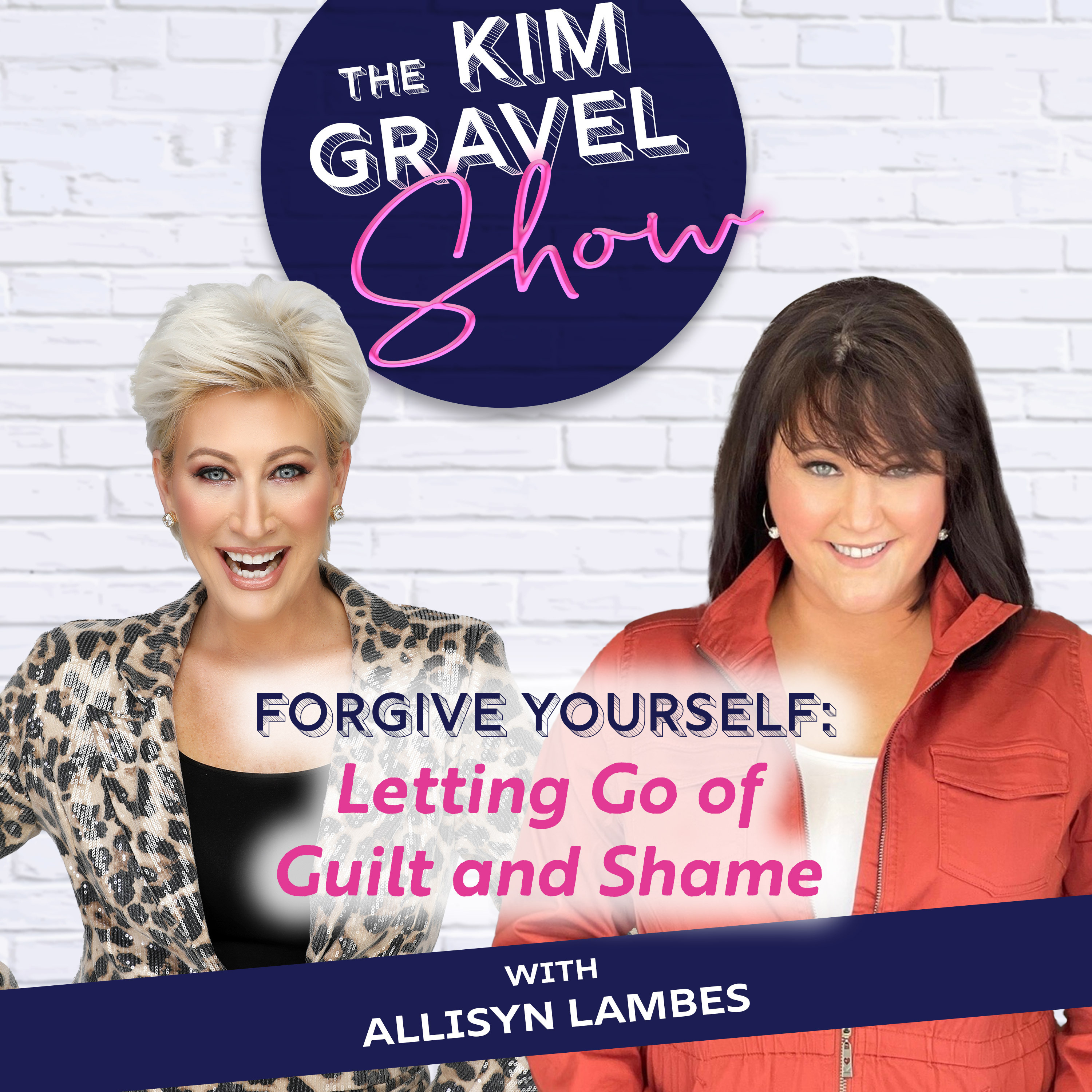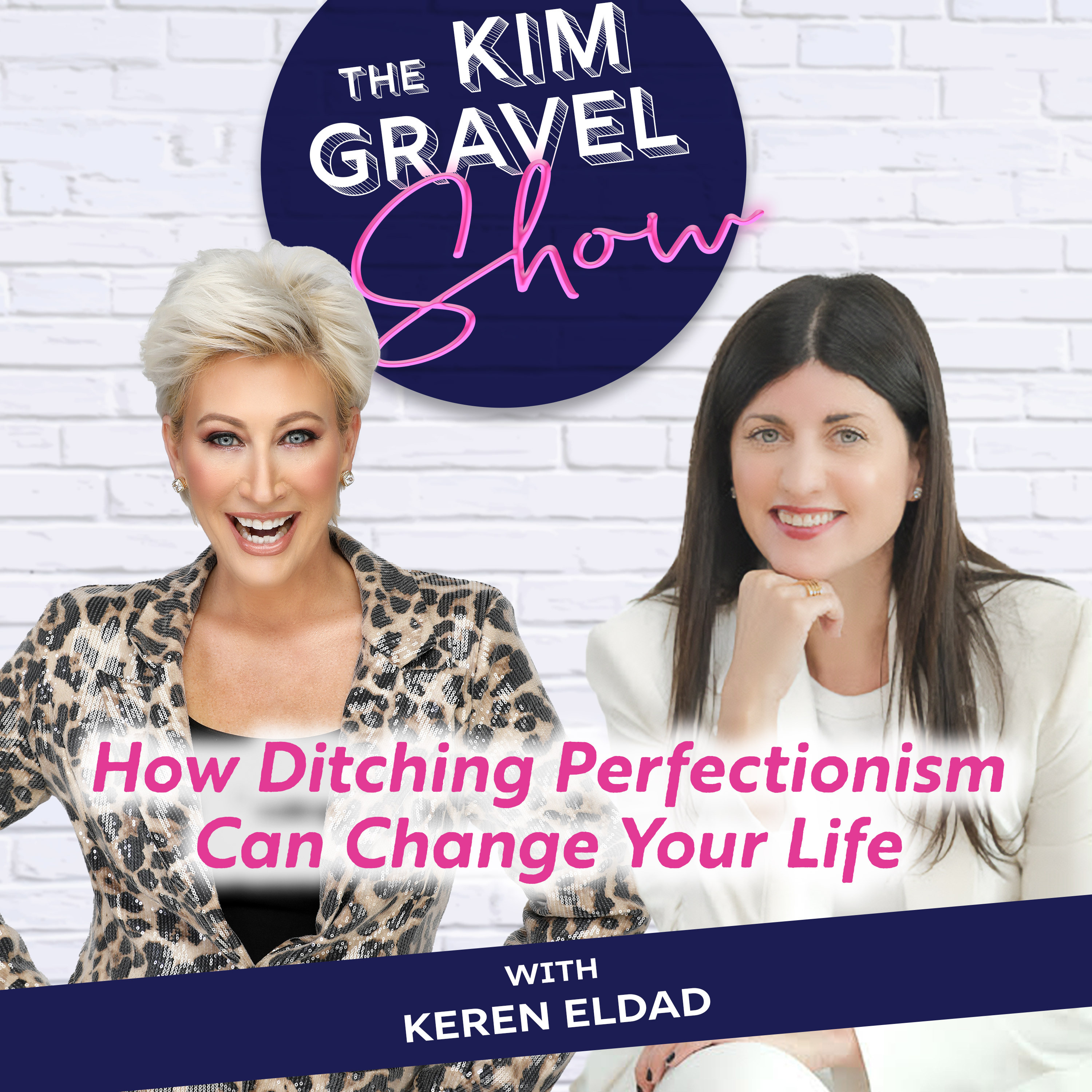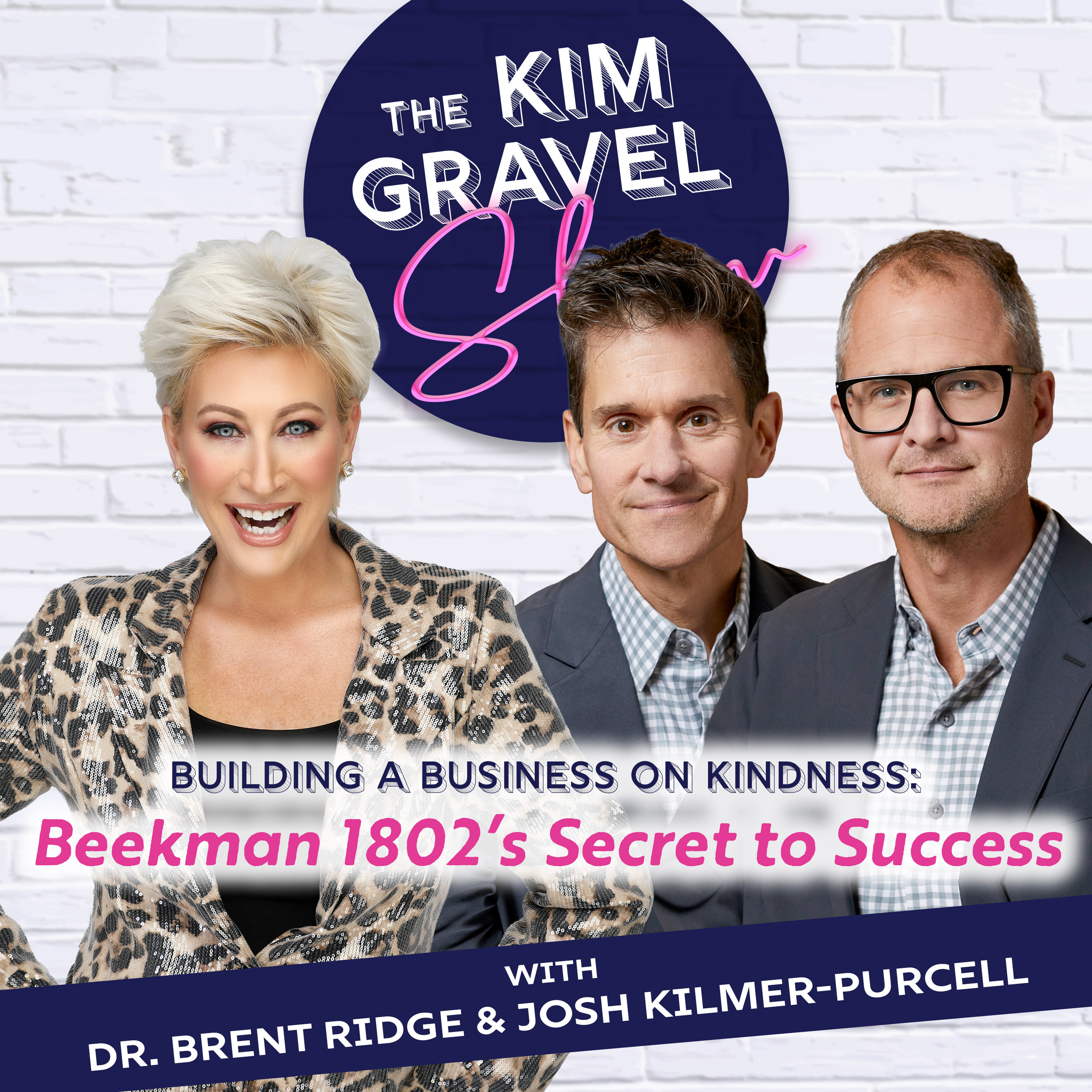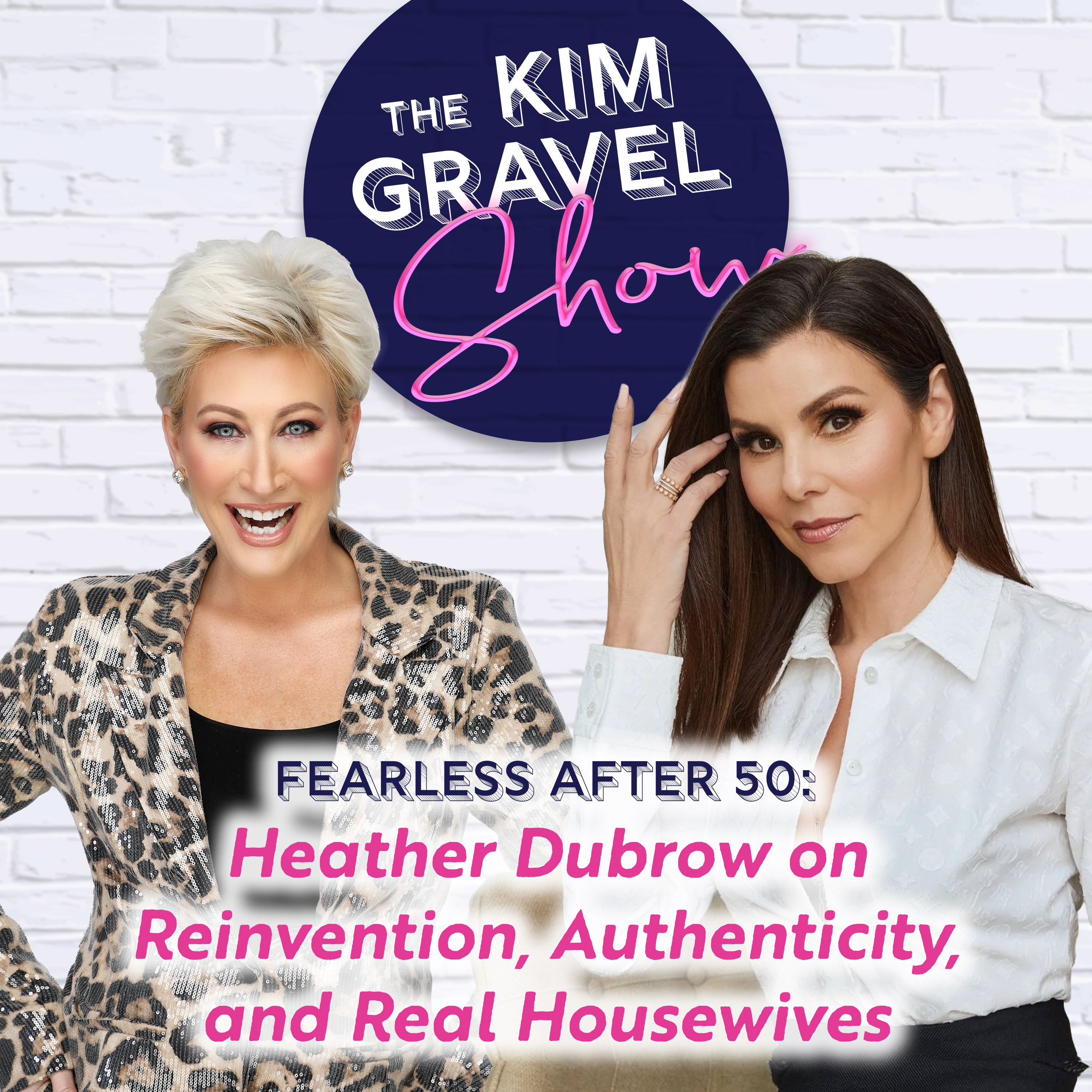Money Tips Every Woman Needs to Hear with Lacy Garcia
This episode will empower you to take control of your money with practical advice that builds confidence, wealth, and financial freedom.
This week, I’m chatting with Lacy Garcia, the powerhouse founder and CEO of TrustWillow.com—a financial advisory company built for women. We dive into how to tart changing your financial life, no matter what age you are, flipping your money mindset from stressed to confident, and how to find the right advisor who fits you. Lacy breaks it all down in a way that is easy to understand no matter how much experience you have with managing money. We cover everything from owning vs. renting, how much you really need to retire, smart salary negotiation strategies, and even the emotional side of money—including financial infidelity. If you’ve ever felt overwhelmed by your finances, wanted to learn how to confidently ask for what you’re worth, or just needed a little boost, this episode is for you.
In this episode:
- What a financial advisor actually does (and how they can help you)
- How much you need to save for retirement
- Building confidence with money
- Money’s impact on relationships (it's huge)
- Talking about money with your partner
- Building wealth at any age
- Teaching kids financial literacy
- Your money questions answered
Here is my favorite quote from this episode:
“You are worth more than you think you are.” - Kim Gravel
If you want your questions answered then leave a comment or call me and leave me a voicemail at 404-913-6460
There is BONUS CONTENT in our free newsletter so make sure to subscribe at https://www.kimgravelshow.com
Collecting Confidence, my best-selling book is now available in paperback with a brand new discussion guide!
Click this link to buy it now: https://www.barnesandnoble.com/w/collecting-confidence-kim-gravel/1141694399?ean=9781400238606
Join my Love Who You Are movement at https://lwya.com
Connect with Me:
Connect with Lacy Garcia:
New episodes of The Kim Gravel Show drop every Wednesday at 6pm EST.
Support our show by supporting our Sponsors:
American Financing
Struggling with high prices and credit card debt? You're not alone—Americans are facing record debt levels. American Financing, a family-owned mortgage lender licensed in all 50 states, can help you use your home’s equity to pay off high-interest debt.
Their salary-based mortgage consultants are focused on what’s best for you—not commissions. Customers save an average of $800 a month, and you may even close in as fast as 10 days. Plus, you could delay up to two mortgage payments, giving you extra breathing room. There are no upfront or hidden fees to see how much you can save. They’ve helped hundreds of thousands of homeowners, with great reviews to show for it.
Call 866-889-5154 or visit https://americanfinancing.net/kim to get started today.
NMLS 182334, www.nmlsconsumeraccess.org
See Privacy Policy at https://art19.com/privacy and California Privacy Notice at https://art19.com/privacy#do-not-sell-my-info.
*This transcript was auto-generated*
Kim Gravel:
We're gonna be talking all things money.
Lacy Garcia:
For years and years. I was so stressed about money. I was not alone. The majority of Americans are stressed out about money, and women especially.
Kim Gravel:
Is it best to own your home or rent? How much money do you need to retire? What is your best salary negotiation advice? Hello, everybody. This is the Kim Gravel Show. This is your podcast. Dose of encouragement, fun, laughter, hope. Just random bits of information. Hilarity. I mean, Zac, can I just go on and on about what we want this podcast to be?
Zac Miller:
You could go on and on, Kim, but you didn't read the script that I wrote for you. I wrote you.
Kim Gravel:
Yeah, because that looks stupid to me. The hello, Hello. Hello, Hello. What was that about?
Zac Miller:
I wrote hello 10 times. I wanted to see how many times I could get you to say hello at the top of the show. It turns out the answer is one. It turns out it's one.
Kim Gravel:
The answer is one. I cannot be told what to do. And this is perfect for this show because Travis, you know, it's a control freak with money. Did you know that? Do you know that he's the cheapest man in the free world, Right?
Zac Miller:
Yes, I do. Yes.
Kim Gravel:
Okay.
Zac Miller:
You remind us often. And I think I love that about Travis, and I love that it works for you guys.
Kim Gravel:
Do you, though? Do you?
Zac Miller:
I think you need Kim. You need Travis. You need a Travis in your life.
Lacy Garcia:
Tell me I'm not.
Zac Miller:
Tell me I'm not.
Kim Gravel:
I will not answer as of yet. We have to wait and talk about it during the show, because I will tell you, I did pray for that in a partner to get married to. I prayed for someone to be very, very frugal and be careful what you pray for. And so we're going to be talking all things money. Let's just get to the episode, because we are talking money, money, money.
Lacy Garcia:
Money.
Kim Gravel:
Oh, okay, Zac.
Zac Miller:
All right. You got me on the high note there. You tricked me into doing a high note on television, which I don't like that at all.
Kim Gravel:
Stick to podcasting. Stick to podcasting.
Zac Miller:
Thank you, thank you, thank you. At least you're not like, hey, you have a face for podcasting. That's.
Kim Gravel:
Well, you have a face and a voice for podcasting.
Zac Miller:
Oh, wow. Thank you, Kim.
Kim Gravel:
Wait a minute. But podcasts now are video, so you have it both.
Zac Miller:
I know. Well, thank you. Yeah, that's like the insult used to be like, oh, you have a face for radio. Right? That used to be the insult.
Kim Gravel:
Yeah, the face for radio. No insults to them today.
Lacy Garcia:
Thank you.
Zac Miller:
I have a face for our audience on video.
Kim Gravel:
You do. You are very, very handsome. Travis is.
Zac Miller:
Wow. This episode is off to a great start.
Kim Gravel:
When we're talking about how handsome I am. Yeah, you both are kind of cheap.
Zac Miller:
I am kind of cheap. I don't love to buy just, like, tons of stuff.
Kim Gravel:
I do. More is more to me.
Zac Miller:
I get that. And I kind of want to be. I want to be more like that. Actually. I think I should buy myself more stuff. I just like. I don't let myself have a lot of stuff.
Kim Gravel:
Yeah, well, Travis is, you know, Travis, when I say cheap, it's not that he has a lack mentality. He has a mental. It's fun. It's fun for him to save money. It's fun to get a deal for him. And my oldest son is like that a lot too. I think it. You're either born with it, It's a mindset.
Kim Gravel:
It's not about hoarding money or, you know, being like, I like, you can't have enough, or being like a place of lack. It's just actual fun for them. Like how shopping is fun for me. Saving money is fun for them. It's bizarre. I don't get it.
Zac Miller:
I totally get it. You don't feel good. You don't feel good when you find a really great deal or you save something like, oh, this could have been $500, but it's 200.
Kim Gravel:
I have limits. Like, I like. I mean, some of these people spending $10,000 on a purse. I would never do that. I'm not judging anybody for doing that. But I know how purses are made and all that kind of good stuff, so I would never do that. But like, Travis says, I have high dollar taste because I like collecting, like, real estate.
Lacy Garcia:
Like, it's not like.
Kim Gravel:
It's not like a purse.
Zac Miller:
I did not. You like collecting houses?
Kim Gravel:
Yes.
Zac Miller:
Yeah.
Kim Gravel:
Like land, you know, saying like, he's like, okay, slow your roll a little bit. You know, I mean, that's kind of an investing. That's an investing because they're not making any more land.
Zac Miller:
Do you watch TV shows?
Kim Gravel:
There's a dog pee in a fire hydrant. Yes. Let me tell you about the good show I'm watching now. Mini Rennie. It's Joanna Gaines. You do little mini renovations. They're not big blonde. And Travis goes, okay, good.
Kim Gravel:
Let's do that mini Renny. We're not doing the major renovations. We're gonna do mini Rennies.
Zac Miller:
I got news for you. The mini Renny is still thousands of dollars. It's crazy.
Kim Gravel:
No, it's not. It doesn't have to be. But, you know, John is my second husband. You know, he's like my handyman husband. So I have a husband, and then I have a handyman husband, and it is fantastic. Fantastic.
Zac Miller:
And I will attest, John is amazing. Like, he's great.
Kim Gravel:
John is amazing.
Zac Miller:
He helps us with the podcast studio. I could just tell. I told John, hey, we need a hole in this ceiling to put a light on. And all of a sudden, he just go do it. Yeah, he loves it.
Kim Gravel:
Yep.
Zac Miller:
Yeah, he's great.
Kim Gravel:
I don't know how we got on multiple husbands. And he's cheap, too, so I'm surrounded by cheap men.
Zac Miller:
For the record, Kim doesn't actually have multiple husbands.
Kim Gravel:
Lord, no.
Zac Miller:
Let's get to our. Let's get to our guests, shall we?
Kim Gravel:
All right. Zac and I were talking earlier. It's money, money, money time. My guest today is the founder and CEO. I know money. She's the founder and CEO of TrustWillow.com, which is kind of like this free dating app for finance. It's the greatest thing ever. But instead of finding, like, your soulmate, your true love mate, you can find your financial advisor.
Kim Gravel:
And I don't know about you, but sometimes your financial advisor is more of a love match than the match you're in that you're dating with. That's a whole nother show, which, honestly, you know, it's kind of better than a date. She is smart, she is savvy, and she is here to help you with your money, honey. Let's welcome Lacy Garcia. You know, every time I see your face, I just want to say money.
Lacy Garcia:
Well, Kim, thank you so much.
Kim Gravel:
I'm so glad you're here.
Lacy Garcia:
So happy to be here with you. Thank you so much for having me on.
Kim Gravel:
Okay, so your company specializes in financial planning for women. And I just. Let's just start off by saying that for some people is very intimidating. Right? Like, financial planning seems like this. You gotta be some big old smart mba if something, your banker person. Can you once and for all definitively define a financial advisor? Because I think people don't really know. I know I didn't know exactly what that was. You know what I'm saying? Can you define what a financial advisor is?
Lacy Garcia:
It's an excellent question, because there's a whole lot of people who technically have different licenses and who technically could be. Are considered financial advisors in the realm of what I'm talking about. I'm talking about your personal financial advisor who's think of a Financial planner or somebody who is. So I'm going to say they're a fiduciary. So they're someone who has a legal fiduciary responsibility to put their clients best interests at heart. Because they're not just helping with the investment management or selling certain products or they're trying to take a step back.
Kim Gravel:
And look overall at your life in finance.
Lacy Garcia:
Yeah. And what we're seeing in the industry, which I love and which we've kind of been, I think I'd like to believe we've helped a bit with is that those people are, are, are, are bringing in education, bringing in coaching, are really, they're the people that, to be honest, I was like, why can't you have a one stop shop where you go to, you go to your financial advisor who's also sort of like your life coach and is also like there's some therapy.
Kim Gravel:
Right.
Lacy Garcia:
And I'm like at the heart of this, you're getting around money.
Kim Gravel:
There should be. Yes, you're getting.
Lacy Garcia:
Because I'm like your financial. You know, we go to the doctor, we'll go to the trainer or we'll go to the nutritionist, you know. Yeah, but, but we would not, we wouldn't go to the, we might go to the therapist but we won't go and get, take care of our money. And I'm like we got to get, we got, we gotta get that all put it together. So that's what we're hoping.
Kim Gravel:
This is the thing.
Zac Miller:
Not every financial advisor is a fiduciary. Right. Like the fiduciary thing is like they have to put you first. But not everyone is doing that. How do you know if you have someone who's doing that?
Lacy Garcia:
Yeah, so one of the things that we've done is we've created these certificate programs. They're not, there's. So there's all these designations out there which are very useful and helpful a couple years of training. Like there's a certified financial planning designation, certified divorce financial Analyst designation, the certified financial charter holder. There's a bunch of designations which are all incredibly great education and those people can be really amazing skill sets. But we have this other thing which is called Advisor for Women. Right. With the criteria we use to determine, we first of all check so anybody can get on their computer and go and broker, check a financial advisor and check to see a.
Lacy Garcia:
Do they have any disclosures like in that whether it's been five years or it's been 30 years that they've been in the industry. Has there Ever been an issue? Has there ever been a customer complaint? Have they ever had to settle a dispute? Right. So that's one way you can check to see. And we, so we have this, you know, our program where we coach them, we interview them, we train them, we require reference from one of their. From a different financial advisor at a different firm. So somebody who won't get any money because they are, you know, they recommend them. Right. There's no conflict of interest.
Lacy Garcia:
And from a client, like a woman client who's worked with them for at least a year or two so that we can hear firsthand from somebody. But also checking those broker check or the IP check, making sure with the SEC or within, wherever they're registered, that they are somebody who's in good standing. So it's not. I mean, it is because it is really challenging. Yeah, we've got them. We've got them. And it's because I think that it is so challenging to know. Right.
Lacy Garcia:
And the folks who are oftentimes the people are the best salespeople. They're more salespeople than fiduciaries.
Kim Gravel:
Right. Well, and I want to tell you, just as a regular old person out here in the world of, you know what someone who is going to Willow would be is me, because I don't have any financial background at all. My husband is very money savvy and handles that part of the business. Is this financial planning and advisory. Is this for anybody in any walk of life? Because a lot of people think that if I know I have a financial advisor, you think that's for the really, really wealthy or the really well to do people. But in all actuality, it's for everybody, is it not? That's what I've learned.
Lacy Garcia:
And actually I would say who really we. We cater to or we focus on. It's definitely. It's like inclusive of everybody. Right. So for instance, a lot of married women will come to us and they'll initiate, but they're like my husband. This is the two of us or this is our family doing it together. But I just want to also like, I like what you're doing, that this is somebody who brings in coaching that you guys have vetted.
Lacy Garcia:
So it's definitely. And it can be men coming to us. We also have an advisor for next gen for younger people. So we don't. We're not disclosing. I mean, we're not, we're not turning anybody away, really. What it is, honestly is like somebody who takes a personal approach, who's a real fiduciary. Who really cares about their clients beyond just the numbers and the range.
Lacy Garcia:
To your point, Kim, we really cater to and work with a wide range of financial advisors across the usa. We're just in the USA to now, but we are working with a wide range who work with clients who have very small to like little to no money and are just trying to kind of get help figuring out coaching and figuring out how to get started on investing up until, you know, people who've got five, $10 billion. It's sort of that what the term people would say the mass affluent. Right. Is like the hard working, like need some help. Because honestly, that's where you really need to take advantage of the financial planning.
Kim Gravel:
Yes, yes. Well, and I will say this. You know, it's, it's never too late either to start caring about your finances. Almost like health. Right. Like, you know, we get to a place when we're women and we think we're so out of shape and so fat and we're in our 20s and 30s and we get to where I'm at now and I look back and go, oh God, I wish I had that. I wish I was that fat, you know, like I used to be. It's almost like it's never too late to get healthy.
Kim Gravel:
It's never too late to start eating right. It's never too late to start, you know, saving and investing money. Right. Like, because so many, so many people are out there saying, hey, I'm barely getting by, girl.
Lacy Garcia:
And that's the time when you want to start. Right. Like, I mean, obviously it's never too early to get started, but if you feel like you missed the boat, it's too late. Like, then give yourself grace. You're not alone. You're definitely not alone. There are so many, so many of us who like I, I started this to make lemonade out of the lemons in my life for other people because I had certainly made so many mistakes, you know.
Kim Gravel:
Yeah, because you went through a divorce.
Lacy Garcia:
Yeah. And I didn't start this company until I was 40. Right. So I'm like, I certainly, I, I certainly hadn't. You know, there is, it's definitely. And if you're 60 or you're in your 70s, by the way, 70s, the new, like 40. So it's true.
Kim Gravel:
Thank God, girl. Thank God.
Lacy Garcia:
Right? So I'm like, it's not too late and there are things you can start to do and then one of the main things is just actually giving yourself some grace. And then like, I love how you Talk and obviously your book on about all about confidence, like it's like just give. It's be okay and like be honest with you and then ask for help. Right? Because the reality is there are so many people who want to help you and there's so many things that you can do to help yourself and to get the right people to help you. You just have to allow yourself that grace to not feel ashamed, to not feel embarrassed. And like, not like I used to do calls with financial advisors when I was interviewing financial advisors and they'd be like talking up here and I would be like pretending like I got. But I have no idea what they're talking about. Right, right, right.
Lacy Garcia:
And there's no.
Kim Gravel:
No question is a dumb question.
Lacy Garcia:
No question is a dumb question at all.
Kim Gravel:
Okay, let me ask you this. You know, people would think like in marriages and in life, in relationships that like infidelity or betrayal would be the number one cause of breakups, but isn't money one of the top causes of. It's money people.
Lacy Garcia:
I think money. There's a bunch of things. So there's a bunch of things going on with that. For starters, we are seeing, I think just generationally wise, we're seeing more and more female breadwinners and you know, primary or sole providers. And therefore that's one thing, right? That 2/3 of women who out earn their husbands will leave their marriage. You know, and I think that, I think that that sometimes has to do with, I mean people can be. I have so many friends who are the happy, happily, the breadwinner, love, you know, their husbands, become the stay at home dad, and it's like working fabulously. So it doesn't have to be that way.
Lacy Garcia:
I just, you know, I think it's one thing when I've, you know, seen people, they're, they're doing that role, but then they're still expected to do all the other roles. Right. And there's all the other things that fall apart in there. Right. You know, so I think that, that, you know, we, those roles, we were all, you know, raised in these traditional roles and now it's hard. It's hard for men too, by the way. It's. I meant I'm empathetic to men because it's, it's not easy for anybody who's involved.
Lacy Garcia:
We're all kind of trying to figure that out, right?
Kim Gravel:
Yes.
Lacy Garcia:
And it's not, it's totally. And a lot of men are feeling emasculated and it's like super hard. I get it. I get it, you know, I mean, obviously, though. But a lot of women who are really working, they're, you know, and then they're doing dinner and take care of the kids, and they're kind of like, why am I doing this? You know, I don't have to. A lot of women stayed into marriages before because they couldn't leave. They didn't have any money. They didn't even have a credit card in their name.
Lacy Garcia:
They didn't have any credit. Right? And now when women like. I will say that regardless of who you are, regardless of your background, your faith, your whatever, I'm like, money is, is, is. It's like so critical to your health to have your own money and have some. Because it gives you kind of power and control over your own life, right? Where. Where you. I mean, my parents were married almost 58 years. My mom passed away.
Lacy Garcia:
But they had the most beautiful marriage. It was. Worked. It was a 50, 50 partnership. Like my dad, actually traditional. Took care of my mother, you know, and it was all fabulous. But that doesn't happen very often.
Kim Gravel:
Okay, so look, we.
Lacy Garcia:
We.
Kim Gravel:
We have put it out there to our community. We wanted people to ask you their money questions. Okay? And so we've got several questions. Zac, do you wanna read it? Cause, I mean, we got some good questions for you.
Zac Miller:
Yeah, yeah. Here, let me pull myself up and I will read. This is the first one. I wanna start with the first. So these are from our listeners. And I will say I actually did paraphrase a lot of these because a lot of people, when you get started about money, they go on. I will just say that up front. But yes, there's a little bit of editing that I did for some of these.
Zac Miller:
But this first one is about financial infidelity, which I think you guys were sort of talking about a little bit with causing for divorce. Let me read this question and see what you think. I just found out My husband of 22 years has a secret credit card. I'm not sure what he's using it for. Should I confront him? He handles all of our finances, so I'm not sure how to even bring this up. What do I do?
Kim Gravel:
Secret credit card.
Lacy Garcia:
That's a. That's a tricky one. And that does happen, right? That does happen sort of all the time. So, okay, I have to be careful here because I'm not a licensed therapist, right. And I'm technically no longer registered as a financial advisor. So I want to be. I'm going to give sort of a general. General guidance on this.
Kim Gravel:
And then I'LL give my full opinion afterwards.
Lacy Garcia:
Yeah.
Zac Miller:
My disclaimer that this is not financial advice. You shouldn't get financial advice from a podcast. Go. Go get a real financial advisor.
Kim Gravel:
But I have an opinion and I will share it after you do.
Zac Miller:
This is opinion. This is opinion.
Lacy Garcia:
Yeah. I mean, I will tell you, in my own. My own life, I've definitely addressed most of those things like straight on bull and China Shop, and that doesn't always work so well. But you could go. If that feels good to you, go for it. Right. I'm also, you know, like, I mean, I'm a very passionate and spirited person. I will say that one thing we recommend is that is there is.
Lacy Garcia:
It's sort of like take a step back and think about setting up, approaching it. Like, okay, if you want to be smart and strategic here and like, use your little bit of a feminine wiles here, right? Do we do like, we. Maybe we have, you know, over. Set up a kind of date and like, over the conversation, bring up some. If you are not regularly talking about your hopes, your dreams, your financial things, like, you can start to kind of bring that up in the conversation and you can ask. There's some great questions that you can ask that would get at the place where they then are. He would be able to share, you know, maybe feel comfortable enough sharing. If it was just like, hey, I just wanted to build some more credit or I wanted to, like, have this, because maybe he's saving up for a big gift for you and he doesn't, like, you know what I'm saying?
Kim Gravel:
What.
Lacy Garcia:
Whatever it may be, right? So I would say there's. There's either the go and like, you know, straight Adam or that approach. Those are two options, right? And then Kim's gonna give your.
Kim Gravel:
I mean, this is the thing about it, you know, I don't even know why money is such a really hot button in marriage. I think it's because there is, if not managed properly, or if one's a spender, one's a saver, I mean, it could cause stress and. And even trauma, you know, in a relationship. But I know that Travis is such an extreme investor and saver, and I'm not a. I don't overspend, but I can more so than he does. And for us, you know, in our relationship, we do take on certain roles, so to speak. We do, like, we do have financial conversations. I do know what is going on.
Kim Gravel:
I do ask questions. And there's nothing wrong, in my opinion. And especially if you are this. You are the One that's at home not managing the finances. You're trusting your partner. Just as you know, Travis trusts me with some of the things with the kids that, you know, he might not know what's going on or whatever, but you have every right to question. And I think that that is, that's how I learn, is I question and I'm curious. And so I would say ask double down on that question.
Lacy Garcia:
And I would say, Kim too. This is now a really critical thing. I think as you're somebody who's entering in a new relationship or you're thinking about getting married.
Kim Gravel:
Oh, come on, girl.
Lacy Garcia:
If you've been married for 30 years, 40 years, it's still. You should, you should introduce. That's why I was saying there's two approaches to how to try to bring it into the conversation. But you a hundred percent have every right to know.
Kim Gravel:
Can I ask you this too? Because there's so many people listening that are single again, that are going. Heading into dating relationship. Like my bff, Amy. She, she dates. She dates and she's very financially sound. She cheap too. She very cheap and she's just starting.
Zac Miller:
You're surrounded by cheap people, Kim. Just all cheap. Who's not cheap?
Kim Gravel:
Tell you something, people, Nobody. And be careful.
Zac Miller:
No, your sister.
Kim Gravel:
That my sister is a drain. It's not. She's not cheap. She's just a big old drain. And she just drains every bit I've got. But don't you think it's important? Like, like, because my friend, my bff, she's. She, she's just started investing like five years back and it's very, very financially successful. What will you say to that when you're entering into this new romantic love? Because, like, she's got her, her financial crap together.
Kim Gravel:
What if who she's dating does not?
Lacy Garcia:
So I'll tell you what I do personally.
Kim Gravel:
Tell me.
Lacy Garcia:
I've been divorced now for like almost eight years and I'm single. I'm like, you set your standards and you ask the question and like, don't be afraid to walk away if you don't get the right answers. Like, if you see yellow, if you see red, run. If you see yellow.
Kim Gravel:
So let me ask you something. What's love got to do with it then? Because I totally agree with you. Because what you that love and that, oh my God fades and what is real is paying the bills.
Lacy Garcia:
It also depends, like, what type of relationship you're looking for. Are you looking to get remarried or are you looking for a companion? Like a lot of I think a lot of second and a lot of third and more marriages, they keep their finances completely separate, and there's absolutely nothing wrong with that. And I think a lot of people find more and more so that a lot of people are in healthy relationships, do keep a lot of the. They delegate the financial piece of it. They keep certain accounts separate. Like, women like to have. Like, I don't. My friends are like, you know, I don't want him judging if I'm going and getting a facial or I'm doing this or doing that, especially when, like.
Lacy Garcia:
Or even money, you know, like, he can't understand. But I'm like, you get to go do your golf trip. Like, you want me to look this way? You know, it's expensive, right?
Kim Gravel:
I got so tickled today. This just happened today. So there is my money, his money, our money, and then the kids have all the money. You know what I'm saying? So my credit card. I have a little debit card. I get an allowance. This is a true story, y'. All.
Kim Gravel:
People don't believe me. They think I'm just. I'm not BSing. This is the true story where I get money. You know, that's my spending money, right?
Lacy Garcia:
Yep.
Kim Gravel:
Well, how come my husband and two kids dibble, dabble, and dip their little card into my bank account to. To windle my money away. I'm at the Kroger the other day trying to get a sack of bean beans and some bananas. You've been. Ma', am, do you have another credit card? How embarrassed was I? Okay.
Lacy Garcia:
Yeah. I mean, you know, you're not alone, because women always put everybody else first. Not all women, but most women, especially wives, especially mothers. We put everybody daughters, sisters, like, we put everybody odds, like we put everybody else first. That's one of our pitfalls, right?
Kim Gravel:
Where was my money? Where did my money go? They siphoned my money. $10 at the time, and I lost my mind. And I just told Trump, said, that's it. Nobody has my credit card but me. Tech, get your grubby hands off my credit card. Because they spend my money.
Lacy Garcia:
And that's a smart. And look at. You're setting the right boundaries, and you're setting right. And that's actually really healthy and smart way to handle it, because you're like, wait a second. I need my money. This is my money. Okay, yes, I'm all for sharing and taking care of my family and everything.
Kim Gravel:
But not with my money. Not with my money. To me, I think boundaries are important. So I'm Glad to hear you say that because, you know, I tell Amy, prenup, prenup, you know, I mean, I'm not kidding.
Lacy Garcia:
So prenups, by the way, like, I think I wish everybody and I believe in lifelong marriages. I've witnessed many of them. I'm product of one. But I. I think the. A prenup is like one of the best ways before you get married that you can get out all these conversations and you can really get to know somebody. Like, you really get to know somebody in the context of, like, what happens if things go wrong? Or some of these questions were, we're afraid or we're ashamed, or, you know, we get them out in the open and like, honestly, you know, sometimes those couples can't make it through those conversations. Trust me, you would.
Lacy Garcia:
You're better off doing it then than like, fast forward a couple years, a couple kids. Right. And honestly, most, I think, more often than not. They do. They do. If you guys are able to communicate, then it sets up a super healthy, ongoing communication around finances, around what to do with children, around big, hard things. Right.
Kim Gravel:
I think probably finance would be one of the hardest conversations to have. It's cold. It's very cold. But I will tell you, Travis and I are better now than when we were because he's such a great money manager. I'm not a great money manager. I've always had. I think of money like this. It comes freely and easily to me.
Kim Gravel:
I don't stress about money. Never have. Partly I don't think it's real. So, you know, my delusion, it serves me at times. I'll be honest with you, because, you know, and he is like, money, money, it matters. And da, da, da, da. He takes it very seriously. But together, we have decided to work together.
Kim Gravel:
Meaning I have let him. I don't know why I'm telling you all of this, but I feel like you're my counselor now, so we're gonna talk about it. I feel like I have let him really step in and lead and guide me with this allowance. That's a bad word. And people are going to start hating Travis over. It's not. It's not what I'm saying. I've allowed him to lead in that area, and he's allowed me to lead in being a little bit more of an educated risk taker when it comes to investments, like in real estate or in things that I can see.
Kim Gravel:
This could be a moneymaker long term. So it's like we're working together is how important is that? Whether you're working with your spouse or your partner or even your financial advisor. How important is it to listen to one another?
Lacy Garcia:
It's one of the most important things, I think.
Kim Gravel:
So it's not me.
Lacy Garcia:
Yeah, no, very much so. And right. And similarly, like, obviously you have an incredible self awareness about both your. Both your weaknesses and your strength.
Kim Gravel:
Yeah.
Lacy Garcia:
That's like a true partnership where you can see both be on it, open and honest about what you do well, what you don't do well, and how you can come together. And there's that synergy. Right. And the reality and the conversation we're having, like this is the type of conversation you should feel that your financial advisor, your financial planner, the person that you're working with is like, I think of it, like we call it like the dating map is because it's someone that you connect with on this emotional level that you feel comfortable. Think of it like a best friend or somebody that you have no problems with letting down your guard, sharing, honest. The good, the bad, the ugly. Right. Like, I'm starting a lot of times the I'm scared and the oh, no.
Lacy Garcia:
And the I know nothing.
Kim Gravel:
I don't know anything. Right.
Lacy Garcia:
Like, that's where I mean, like, if you want to get help, you need to be honest. Right. And you need to feel like somebody isn't judging you and instead has got your back. Right. And they're gonna. And they're there to help you. They're there to help you, like, come up with the right plan for you.
Kim Gravel:
Well, and that, that to me has been a game changer because it's freed me up just knowing a little bit more about investing and how money works. And not just money is the separate thing, but it flows with you. And, you know, and it can work for you as opposed to just paying your bills. It can actually work for you. And when you feel that, there's an empowerment to that. Okay, I have another listener question.
Zac Miller:
This next one honestly kind of shook me. I didn't know it to. I didn't know what to make of this.
Kim Gravel:
Okay. Part of me thinks that's good.
Zac Miller:
Part of me wonders if this is real. So let's just. This is.
Kim Gravel:
Let's go with it.
Zac Miller:
I just found out that a year ago, my dad lied to my mom and told her that I borrowed thousands of dollars from them and never paid it back. But really what happened is he lost the money gambling on sports. Now my mom keeps making passive aggressive comments about money anytime she sees me with any new purchases. Right. And my dad is begging me to keep this a secret because he says it will break up their marriage. What should I do?
Kim Gravel:
Oh, y'.
Lacy Garcia:
All.
Zac Miller:
I know, right?
Kim Gravel:
Wait a minute. Before you. No, before you tackle this question, I want to say that in my opinion, I'm right, but it is my opinion that money and emotional ties like this are so intertwined. Like, because you had said that earlier about emotion. This is huge. Okay. Go, girl.
Lacy Garcia:
When we first started, Willow, we believed so strongly in what we call financial life coaching. So financial life coaching is this. Because guess what? Money is totally emotional. Like, just what's going on inside you, right? And whatever's going on with your own stuff and whether or not you feel like you're overspending or not spending enough or whatever, and then you add dynamics like this. It is so emotional. And so, you know, typically, I would recommend trying to have a conversation with a. With a financial professional who's not just an advisor, but also has got the coaching part of it. If you can get your father to come to the table, right? And get your mother to come to the table.
Lacy Garcia:
Because. Because there's a lot going on there. But it obviously, like, has to be addressed and has to be sorted out. But there's clearly. There's clearly, you know, a lot of emotions and fear and embarrassment. And, like, obviously it sounds like your dad probably loves your mom very much and he messed up, but, like, clearly, you shouldn't be in the position carrying that load.
Kim Gravel:
Right?
Lacy Garcia:
You don't have to carry that load. Right? It's not. So it is very much, like, I would say, getting. If you can. You, first of all, should be speaking with somebody who can help you, because this is a trauma, right? It's a serious trauma, and it's something that you should be getting support and individualized support and help on, and then hopefully that person is somebody who can really help you bring them into the conversation and address this in a way, because you shouldn't be carrying that burden by yourself.
Kim Gravel:
We always talk about burden with money, but can you speak to how money is fun? Like, I will tell you, since I've changed my mindset about money and it not being this thing, I've got to have to pay a bill. When I started looking at it, like, it was a way to add value to my family, to my life, to my health, to my community, my money started making money for me, and that became fun. Is. That's an aspect of my. It's not. It's not always. I'm in debt. I'm in trouble.
Kim Gravel:
Once you dig out of that it can really.
Lacy Garcia:
You want to get your money to work for you, right?
Kim Gravel:
That's it.
Lacy Garcia:
With both, you have active and then you can have passive income streams, like different real estate investments or. Are there things. No, very much so. There is. I really do think in this day and age, Kim, I would be hard pressed to come up with the empowerment and the freedom and the ability. Because we live in a world and in a society where things cost money. Right. And so many things cost so much money.
Lacy Garcia:
And, and, and I admire and respect people who are beyond that. And, and, and, but, but, you know, if you especially, you got kids, you got bills and you got all these things, right. You know, I very much live in a world with private school and other things. It's not travel ball.
Kim Gravel:
Yeah, all the things.
Lacy Garcia:
It's all the stuff, right. And the reality is there is something just so like I'm also, you know, I was raised to like that pride. And you worked hard and you earned it, and then you figured out how to like, like there's, you know, and to your point, it's like, okay, if you're young and if you're not young, regardless, start putting some away. Start saving.
Kim Gravel:
Put it away now? Yes, put it away.
Lacy Garcia:
Exactly. And you just set up automatic payments, automatic withdrawals from your. You get a check that comes in direct deposit. Just like it could be $50 a month, it could be a thousand, depends what your thing is. But just to have it automatically go into a different account, and that could be even just going to a high yield savings account, or you can set up some type of, you know, investment account with it. But just you start with things like that and you kind of like forget about it. Like, it's like your 401k, if you take advantage of your company, 401k, it's set up so that you don't even know it, right. It's like the money never came.
Lacy Garcia:
But you do those things and then you can start to create that, you know, from going from just an emergency fund, which is so critical, which is the three to six months that, well, something goes wrong, you know, when you really need that.
Kim Gravel:
That's freedom. That's freedom, baby.
Lacy Garcia:
Before you start to get that freedom where you can do that, you can then make decisions, you know, I've spent so much of my life making decisions based upon what I could afford, you know, what we afford, right. And whether or not like, you know, feeling like working my ass. I'm sorry.
Kim Gravel:
No, it's the truth.
Lacy Garcia:
Not being able to afford the things that I wanted for, you know, my son and for. And like, you know, and not. But when you get to that point where you've got your money kind of working for you, you can then do you make decisions? You have to prioritize. Right? Like, and you can't. I mean, some people have endless supplies. Not many, most of us, not many, no. Make decisions. But like, you can do some of those things that you really want to.
Lacy Garcia:
Right.
Kim Gravel:
But you know what, why don't we teach this kind of financial literacy in schools? Like, for me, I have, I have a 18 year old and a 16 year old and you know, my 18 year old, thank God, takes after my husband when it comes to money. But like, I'm trying to, we're trying to really set them up because managing money and being able to see money through investments and through that kind of empowerment, like you said, that freedom. Why aren't we teaching young people how to do this? Like, can my 18 year old go on Willow and start?
Lacy Garcia:
Okay, Totally, totally. And that's why we have both the next gen. Right? Because it's never too early to start. I would say some school systems are starting to make financial literacy part of the curriculum, but I will say that it starts at home. Right. You know, it's like having open and honest conversations about money with your kids is a gift. It's a gift. And there are going to be times where you don't have enough money and you're going to be sad and you're going to cry because you wanted to be able to send them to that camp or you wanted them to be able to go the things that you can't.
Lacy Garcia:
But you know what they're going to see and know that, like, hey, I couldn't because I can't afford it because of these reasons. And they're going to then. And if you are open and you're honest and then you try to problem solve with them, like, they will learn so much from that. Learn so much from that. That is. And I think teaching kids, I mean, I didn't even know. Like, I was so sheltered. I had no, I didn't even have credit, Kim, until like I was in my mid-20s.
Lacy Garcia:
Because I just thought, oh, you don't spend any money. You have, you have a debit card, you don't spend any money, you don't get into any trouble. Guess what? I got a bad credit report when I was like 23 years old because I had an overdue library book.
Zac Miller:
Oh, I almost had that. We almost went to collections over a Library book, like, a month ago.
Lacy Garcia:
I mean, like, this is. And by the way, I was like, how is that even possible? But I didn't even know. And they're like, you got to set up. This is where it gets scary, because with kids with credit cards, it's like, okay, the reason to set up a credit card is actually, like, not to use it. It's just. It's to start to establish credit. Right? Because you need to establish credit. But, like, nobody taught me that.
Lacy Garcia:
You know, they just taught me, like, not to, like, spend money we didn't. I didn't have. So I didn't. But then I, like, ended up with this. Wait a second. It took me. I mean, again, it's.
Kim Gravel:
It's. But this is, like. This is why you developed Willow. This is a place to start. Maybe start over. Maybe start for the first time. Maybe start. You know, maybe you do have a little nest egg and you're ready to get it out there working for you.
Kim Gravel:
I mean, you got to go check this website. Okay, before we leave, before you go, we gotta do rapid fire questions. But I did money rapid fire questions for you, so.
Lacy Garcia:
All right.
Kim Gravel:
The first thing that comes up comes out. Don't think about it. Just answer the question. Rapid fire questions. Okay. All right, here we go. Would you rather be rich or famous?
Lacy Garcia:
Rich.
Kim Gravel:
Come on. You know what I think? I think people, like, over 25 would say, who cares about being famous, honey? We want the bank account.
Lacy Garcia:
I'm okay with being someone nobody knows. Me too.
Kim Gravel:
Please forget my name. Anyway, if you could see one person's tax return, who would it be?
Lacy Garcia:
Ugh, I don't even know. I'm like, I don't even know.
Kim Gravel:
I think I would want to see Jeff Bezos.
Lacy Garcia:
I'm just gonna, like, ooh.
Zac Miller:
Oh, that's. See, that's a good one. That's a good one.
Kim Gravel:
If you just drop Mike, forget about it for sure.
Zac Miller:
Oh, my gosh.
Kim Gravel:
That's it.
Zac Miller:
Kim, for the record, I would want to see the rocks. That would be the Dwayne the Rock Johnson. I would be.
Kim Gravel:
Oh, yeah. I'm sure his is good. I'm sure he's good. She just said ex husband. That Trump said all that. Okay, that does. If you could be a financial advisor to one historical person, who would it be?
Lacy Garcia:
Oh, you know who I just like, I met her once, and she was so amazing and inspirational is Maya Angelou. I just feel like every time I heard or read something, I learned something new from her.
Kim Gravel:
Yeah, I don't know. How much advising she'd be doing to you or you'd be doing to her? I think you. That's a win win there.
Lacy Garcia:
I went the selfish route.
Kim Gravel:
Me too. Me too. Okay.
Lacy Garcia:
I was looking to get.
Kim Gravel:
Folks, I'm going along with you as your personal secretary. Okay, what is the best. What is your most best favorite song about? Money. A lot of 80s songs about money.
Lacy Garcia:
I know. I was like, money, Money, money. That's it.
Zac Miller:
That's the one.
Kim Gravel:
Yeah. That's your theme song. Okay, this is a good one. What's. What's one book about money that you recommend people read?
Lacy Garcia:
Oh, there's a bunch of good ones. You know what? You know who I'll give a shout out to is Barnouche Turobi. If you don't know her, she's great. And she is a really a financial kind of coach and she's speaking about a lot of these issues. Like this book is focused on women and a lot of women breadwinners, her latest book. So I think that that's a good one. It's very timely.
Kim Gravel:
I mean, can I just tell you, women have to shift their mindset. That's what I want to talk to you about. What is number one money mindset? Shift people need to have.
Lacy Garcia:
I'd say first, give yourself grace and appreciate yourself. I'm like, those are two things. Don't you know, glass is not half empty, it's half full. Like, what did you do right today? Don't focus on all the bad things. Right. Focus on the. Because it's like you start with those little steps and like you can put a couple dollars away. Yes.
Lacy Garcia:
And if you can't and there's good reasons why you're not doing it right. So I think it's, you know, you give yourself that grace and try and you. And then you have to appreciate. Right. Because otherwise you just continue to get upset with yourself. You're not going to make any progress, right?
Kim Gravel:
Exactly. Exactly. Is it best to own your home or rent?
Lacy Garcia:
You know, that's an interesting one.
Kim Gravel:
This is good.
Lacy Garcia:
Yeah, that's a good one. That's a good one. I think I regret personally not having owned sooner. There was a bunch of real estate that I should have bought that I would have been better off. Personally. Personally, it's. I think it's interesting because I think when you're young, if you can. If you can try to own as soon as possible.
Lacy Garcia:
And then I think when you get older, you want to get rid of it right.
Zac Miller:
Wants to collect it. Kim said earlier she collects real estate.
Lacy Garcia:
I love generally real estate, and I can't make any investment advice, but generally real estate is a pretty like if, you know, generally real estate is owning your real estate. I think, yeah, it's, it's usually a good thing. But you look at this, you know, obviously you want to think about it. If you're thinking about it, I think it's one thing if it's like a home and it just gives you so much joy and the family and everything, but otherwise really run the numbers. Don't be emotional about it. Be doing it because it's a good.
Kim Gravel:
I'm not emotional about any of it because you know what? Everything we've bought has always been a foreclosure and it's been in condition and then we just zhuzh it up. And I have enjoyed the zhuzh more than I had the real estate. So the fun for me was making it the home. Right. What is your best salary negotiation advice? Please come with this in a very hard, fun, informative way. I think that is one of the number one things women really struggle with is negotiating their worth.
Lacy Garcia:
Well, Kim, I've got a funny story for you because I think I was on the Today show a couple years ago and I talked about how you're never more valuable until you sign the paperwork. So no matter what, when you're getting hired, always negotiate your salary before you start. Go in and do you know how many women that I have hired have thrown that in my face?
Zac Miller:
That's amazing.
Lacy Garcia:
Because I'm like, oh, you know, you're right. You took my advice. So they ended up coming out. You know what?
Kim Gravel:
You know what? I agree with you. Because I'm getting ready to negotiate something into July, that I'm going to be outrageous with it. Like, I'm going to be like, either they're going to slap me in the face and go, are you crazy? Or they're going to be like, let's do it. You know what I'm saying? But it is a number. It is something I'm going to, that I would never have thought I would ever ask for myself. But your advice is right on there. You are worth more than you think you are. I promise you.
Lacy Garcia:
Totally. And if you don't ask, you don't get, get. And, and, and honestly, what makes you think it's outrageous? Because you have set some ceiling. Women, we, we do it to ourselves. I'm sure there'd be other people and I'M not getting gender in here and be like, of course I should get that.
Kim Gravel:
Correct. Correct. I love that advice.
Lacy Garcia:
I love that what happens. They say the worst thing is. They say no, right? Like, if somebody wants. I have had, you know, and this is the other thing I'll give advice, especially in this job market and everything is that, you know, you have to go for what you want. You know, also know what you can take because, you know, companies, some companies are struggling and they can't pay, like, they can't pay upfront salaries. Maybe there's other bonus or, you know, other sort of benefits. Like it's a flexible work environment or other things or equity or whatever it is. Because, you know, there's definitely been a whole bunch of people I would have liked to have paid more to.
Lacy Garcia:
But again, this wasn't. The company was not in the position to do it. But, but also know your number because if you take a job that you need more money and you're, you're going to resent it, right?
Kim Gravel:
So it's hard to get it. It's hard to get a raise after the fact.
Lacy Garcia:
And it's really. It is hard to get a raise after the fact, right? I mean, you can get, I think. I mean, I don't know. I'm big believer in rewarding talent to try to retain it. So, like, there's. You should be getting raises, you should be getting bonuses, you should be, you know, but we know, and I'm not that. That doesn't always happen, you know, that you end up in like the. Whatever the matrix is, right? And you're like, I didn't realize this is what I was signing up for.
Lacy Garcia:
So, like, that's where you try to go in as high as you possibly can.
Kim Gravel:
How much money do you need to retire?
Lacy Garcia:
You know, that's a great question. And it really depends. It starts with your individual needs, right? Like, what are your. What is your life cost? Like, first thing, if everybody was listening to this, just make sure you know how much your life costs today and what it's going to cost. You know, I'm like, at the peak, my life is the most expensive it's going to be over the next couple of years because, you know, school paying for school paying for all this stuff, right? All this stuff, right? And then it's going to probably become cheaper, right? Because I'm not going to need a lot of the stuff that I need now. Although we also have to plan for health care, right? Women, we outlive men, but we also have these high Health care costs. So I think it really varies from. It varies.
Lacy Garcia:
I don't, I'm careful not to throw out a number because it will make some people feel really, really bad. And it's not that I think you just have to. But you have to do the like that's why you want to start investing, start putting money away in retirement now kind of as soon as now, now. Because realistically, you know it will, you know, there, there is. If it, if you put it in like even small amounts, it will start to grow, right? You can grow, defer. It's like it's, it's amazing. It's like I'm like, I always like to say I'm like anybody's got a 401k max it out. Especially I'm like that's something too that people don't think about like with.
Lacy Garcia:
Because not every company does that. And it, you might not get that upfront salary you want, but actually if you're getting like a 401k match and you can max it up, you're actually going to come out ahead than if you got that higher salary that you were then spending, right? So these are some of the tax.
Kim Gravel:
Deferred to tax deferred, right.
Lacy Garcia:
And it just like you put in, you know, you put in a couple hundred, a couple thousand dollars in a couple of years, it becomes a couple hundred thousand dollars, right. It's like more a millions of dollars, right. So that's where you want to, you want to. But I think having a sense of what you're. And also you get into that place of like okay, what do I need? What are the things I need? What are the nice to haves, what or the want to haves. But I also do encourage people to think about like side hustles and passive income, right. Especially as you get into, you don't necessarily want to have to go to like the office and like you're not like you want to be able to have more flexibility. You know, there's a lot of things that you can do your, you can monetize your passions and your talent, right? Like you can do, you can do a lot of different things that would be like oh say you like love dogs, but.
Lacy Garcia:
And you like walking dogs, but you don't really want a dog because you travel dog walking business, right? Or like there's you know, all these other things and consultancy, you know, there's so many. You've got a good idea for a product or a service. I mean, you know, tutoring like so many different Things that you can do.
Kim Gravel:
Think out of the box. Think out of the box.
Lacy Garcia:
Yeah. Real estate, obviously. Real estate's a great one. It's a passive stream. Right.
Kim Gravel:
I told Travis the other day, I said, I want to buy a hotel or a motel. He's like, you are insane. I'm like, yep, I want to buy an old hotel. Motel and refab it. He's like, kim, I'm exhausted, but I'm serious. I'm always thinking, okay, what's the biggest financial mistake you made? You've ever made?
Lacy Garcia:
All the things that I have talked about were not being honest with myself, not setting boundaries, not asking, trusting without asking questions.
Kim Gravel:
Got it?
Lacy Garcia:
Oh, yeah. Like, all the things. And I Like, a whole world of hurt comes with that. You know, I think that. I think that you can't just. Your finances are one of those things. You can't just pretend, like, if everything. I think everything's okay, everything's gonna be okay.
Kim Gravel:
No, we gotta know.
Lacy Garcia:
We gotta deal with them. Right. And. And so I think everything that I say is based off of, like, I made this. I mean, starting with, like, who. Like, I have bad credit. 23 or 24. Because I didn't.
Lacy Garcia:
I didn't know, like, that ignorance. I didn't know. Right. But then I've definitely, like. I mean, I then paid, like, you know, you should be. Your credit card bill. You're paying a high interest, and you got a bill. Call them up.
Lacy Garcia:
Right?
Kim Gravel:
Negotiate.
Lacy Garcia:
Negotiate. Right. Negotiate. They'd rather you pay this than not. Right. Or you go to somebody else. You know, you. So there's a lot of things like that.
Lacy Garcia:
A lot of things like that. And then there's some. You know, there's definitely. But a lot of mine have to do with that emotional piece of trusting. And then I can. You know, if I. If I wrote. In my experience, I would have been right there with the other two callers.
Lacy Garcia:
If not, maybe.
Kim Gravel:
Yes. A perfect. Yeah, we're all guilty. We all. We all have our. What's been your biggest financial win?
Lacy Garcia:
My biggest financial win, I think is, you know, Gosh. It's a good question. I've never thought about that one specifically. I just think being at a point where. Where I, you know, can be. Can feel like I can breathe.
Kim Gravel:
Breathe.
Lacy Garcia:
And I can sleep, exhale. Because for years and years, I was so stressed about money that, like, I was stressed. So stressed, like, all the time. Like. And this is, like, I was not alone. Majority of Americans are stressed out about money and women especially.
Kim Gravel:
Yeah.
Lacy Garcia:
And, you know, knock on wood, but, like, I feel like I can, like. And there's other age related issues. Why I can't sleep so well, you know?
Kim Gravel:
But money is number one. Well, this is gonna cause you a little bit of stress. The next two questions, this one in particular. So if I stress you out, I'm sorry, who is your biggest celebrity crush?
Lacy Garcia:
Oh, my goodness.
Kim Gravel:
And can I just say something really quick? I don't want you to. I want it to be totally frivolous. Just a hot guy or girl, whatever. Whoever's your hot. Whoever's. I don't want there to be. Don't think about it. Like, oh, they're so nice.
Kim Gravel:
Just straight out, no hot.
Zac Miller:
But they should be rich. They should be rich.
Kim Gravel:
It doesn't matter. They don't have to be rich. Just hot. Just hot.
Lacy Garcia:
Jon Hamm. Okay, okay, girl, right? And he just had that. I watched. Where he was like. But I would say from, like, a hotness factor, I'd say that one.
Kim Gravel:
I love it. See, you know what I'm saying? Like, when you get over a certain age, you're just like. It's so funny because women can be inappropriate. Men cannot. It's so funny because I, like.
Lacy Garcia:
Can I say that I was like, maybe you have to cut that.
Kim Gravel:
No cutting. We're going all in. We're going all in. Okay, here's another fun one. What is your favorite junk food? Salty and sweet. Again, please do not say kale covered salted chips. I mean, total junk, nasty junk, defied food.
Lacy Garcia:
I'm a straight up. I'm a straight up, like, Reese's peanut butter Cup.
Kim Gravel:
Right? Old school.
Lacy Garcia:
I want the, like, I want the peanut butter, the chocolate. I want this like. Like a little salt thrown in there. The sweet salt.
Kim Gravel:
Lord.
Lacy Garcia:
Ice cream part of it. Yeah.
Kim Gravel:
All right. What's your salty junk food?
Lacy Garcia:
Salty junk food. I love. I mean, you know, chips.
Kim Gravel:
Chips.
Lacy Garcia:
Popcorn chips. Chips and popcorn chips are great.
Kim Gravel:
Like, all right, what flavor of chips? Because, I mean, now I'll know if we can really be friends long term.
Lacy Garcia:
Oh, you know, I used to like. It's actually shifting. Are you ready? I used to really like the, like, vinegar, salt and vinegar. But now I think I'm. I still like those. But I like the. But it said the ruffles. The ruffles potato chips.
Lacy Garcia:
Like, isn't there one that has, like, the onion and like, it's a little.
Kim Gravel:
The cheddar and sour cream. Yes, I know. They're delicious.
Lacy Garcia:
That's good.
Kim Gravel:
Okay.
Lacy Garcia:
That's really good. Kim, if I'm trying to be Healthy. I will if I'm trying.
Kim Gravel:
No, we're not. We're not healthy.
Zac Miller:
Can I come in? Wait. I have a question for you, Kim. What could she have said that would have been, like, an unacceptable answer for chips?
Kim Gravel:
Like, the baked filets. Baked anything. Like, the baked chips and all that? I'm like, I'm not. First of all, it's bull, okay? They're not baked. They're fried, and then they're just thrown through the oven. And second of all, if you're gonna do chips, right, like, see, I mean, go all in.
Zac Miller:
You're gonna get sued.
Lacy Garcia:
I do. I think it's really important. Like, I am somebody who's definitely into, like, nutrition and health and wellness, but I believe that you gotta have your cheat time.
Kim Gravel:
You gotta have your cheat times.
Lacy Garcia:
You have to. And you have to do it for real. Like, you gotta buy the purse.
Kim Gravel:
You gotta buy the purse.
Lacy Garcia:
Your body of that, right?
Kim Gravel:
You can't. And then, like, like, with money, you've gotta splurge sometimes. You can't just be a miser all the time.
Lacy Garcia:
Oh, totally.
Kim Gravel:
Okay.
Lacy Garcia:
No, agreed. And that's the thing, too, right? That's the thing. It's all about that balance, right?
Kim Gravel:
Balance. Thank you, Zac.
Lacy Garcia:
You know, I don't know the exact breakdown, but it's like, you think of it like you're doing the right thing, you know, five times in a row, and then you have a little cheat, and then you do the right thing two more times. You have one more cheat and do it again. No, but there's, like, the splurges, right? You got to be able to have those splurges.
Kim Gravel:
Got to have. You got to be able to call it. This is what I call it. Treat yourself. You got to treat yourself, Kim.
Lacy Garcia:
Totally.
Zac Miller:
Can I just admit something, though? I really love baked chips. I really love them. I actually love them.
Kim Gravel:
You would. He's in California, Lacy. He's a total. You know, they're out there.
Zac Miller:
I mean, they're made of kale, but.
Kim Gravel:
In blades of grass. No, ma'.
Lacy Garcia:
Am.
Kim Gravel:
If we're gonna. I'm talking straight up junk food. Okay, look, y' all, look.
Lacy Garcia:
Straight up, straight up. We need the real.
Kim Gravel:
The real deal.
Lacy Garcia:
The real stuff. The real deal.
Kim Gravel:
You can follow Lacy Garcia on her LinkedIn Lacy Garcia, and you can learn more about her company, willow. Going to trustwillow.com. that's trustwillow.com or following trustwillow on social media. It is a free service to you. Go and get yourself some financial advisory Mint. That's even a word. And listen, get ahead of this finance game and be your own balls. And be a ball of shot caller with your bunny.
Kim Gravel:
Thank you so much, Lacy. Y' all go follow her on social media. You gotta come back, girl.
Lacy Garcia:
This is great. Thank you so much.
Kim Gravel:
Bye, y'all.
Kim:
Zac Miller is the Executive Producer of the Kim Gravel Show. His production company is Uncommon Audio. Our Producer is Kathleen Grant, the Brunette Exec. Production help from Emily Bredin and Sara Noto. Our cover art is designed by Sanaz Huber at Memarian Creative. Our show is edited by Mike Kligerman. Our guest intros are performed by Roxy Reese. Our guest booking is done by Central Talent Booking. Our ads are furnished by True Native Media. And y'all, I want to give a big huge thank you to the entire team at QVC+ and a special thank you to our audience for making this community so strong. If you are still listening then you must have liked a few episodes along the way. So tell somebody about it. Tell somebody about this show and join our mailing list at kimgravelshow.com. I cannot do this show without you and so I thank you from the bottom of my heart for listening. I hope you gain a little bit of encouragement, light and love love from watching and listening to The Kim Gravel Show. I love you all so much. Till next time. Bye.
Founder / CEO / Mom
Lacy Garcia is the Founder & CEO of Willow, an award-winning platform that matches women and NextGen investors with financial advisors they can genuinely connect with—like a dating app for your financial future. Inspired by her own struggle to find trusted advice during a life-changing moment in her 30s, Lacy created Willow to offer personalized, relationship-based financial guidance. With over 20 years in financial services, women’s empowerment, and education, she’s passionate about helping advisors better serve today’s diverse clients. Willow also offers specialized training programs—Advisor for Women™ and Advisor for NextGen™—to ensure advisors are truly equipped to meet clients’ needs. Lacy has been featured on the TODAY Show, Yahoo Finance, and was named a Top Hispanic Industry Leader by Wealth Solutions Report.







